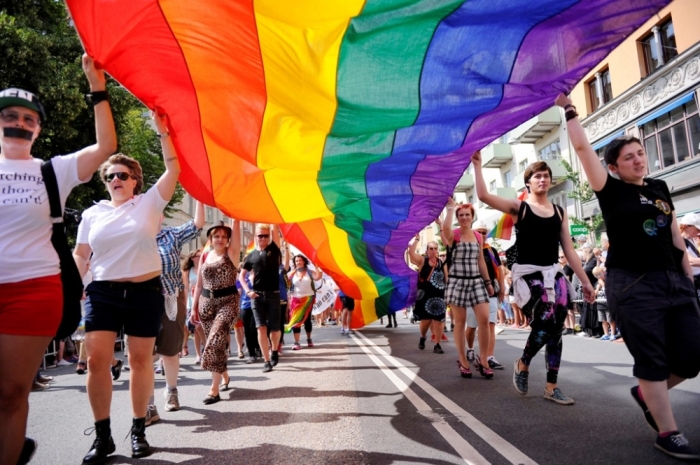Analysis: What Liberals Think About Transgenderism

These views sometimes conflict with other liberal views, feminism in particular. Also, there are some disagreements among liberals over how science informs what makes someone transgender.
J. Michael Bailey, a professor of psychology at Northwestern University, has argued that there are two types of transgender males. One is an extreme form of homosexuality and the other is those who become sexually aroused by dressing as the opposite gender. Bailey considers himself to be the second type. Bailey is also a leading researcher on studies attempting to discover a genetic component to same-sex attraction.
Bailey's work has largely been rejected by the transgender community. He has been accused of making scientific claims without the data to support them, and presenting transgender people as sexual perverts. He has also been investigated for ethics and sexual harassment violations.
One of Bailey's critics is Lynn Conway, a transgender female and professor of electrical engineering and computer science at the University of Michigan. Conway argues, in part, that Bailey has confused his categories. A gay man who likes to dress up as a female to make themselves more attractive to men is not transgender, they are simply gay, she says.
In an August 2014 article for The New Yorker, Michelle Goldberg wrote about disputes between the transgender community and "radical feminists."
Much of liberal feminist ideology is based upon the fact that women can get pregnant and men cannot. Since there is currently no method available to give transgender women the ability to get pregnant, there is an inherent conflict between feminism and the belief that a transgender woman is a woman.
In a Sunday article for The New York Times, Elinor Burkett, a journalist, former professor of women's studies and Oscar-winning documentary filmmaker, complained that Caitlyn Jenner and other transgender activists are trying to change what it means to be a woman. She noted that some of these activists have even complained about abortion clinics that refer to their clients as women instead of "uterus owners." One clinic made the change, explaining that they were "excluding trans people who needed to get an abortion but were not women."
"For me and many women, feminist and otherwise, one of the difficult parts of witnessing and wanting to rally behind the movement for transgender rights is the language that a growing number of trans individuals insist on, the notions of femininity that they're articulating, and their disregard for the fact that being a woman means having accrued certain experiences, endured certain indignities and relished certain courtesies in a culture that reacted to you as one," Burkett wrote.
Goldberg wrote that the conflict arose in the 1970s, but today most feminists have accepted the transgender viewpoints. The few holdouts are more closely aligned with the traditionalist view described below.
The conflict between feminism and transgenderism can also be found in the debate over whether all-women colleges should admit transgender women and/or transgender men, or in which gender-specific sports leagues a transgender person should be allowed to play.




























